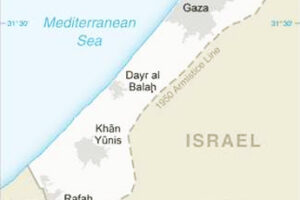JRL NEWSWATCH: “Why Russia and Hamas Are Growing Closer” – Carnegie Endowment for International Peace

“Moscow’s relationship with the militant group Hamas is part of a Middle East strategy meant to boost its standing in the Global South: an effort that has long involved building ties with both Israel and its sworn enemies.”
“… The Kremlin purports to take a hard stance on terrorism. Yet since the massacre in southern Israel carried out by Hamas militants on October 7, it has only grown closer to the group. Despite the killing of 16 Russian nationals … the Kremlin declined to condemn Hamas … expressing only ‘grave concerns.’ … Moscow has long cozied up to the group, declining to designate [Hamas] as a terrorist organization … even after the October 7 attacks, and making clear that it is loath to sever contact …. Russia provides Hamas with what terrorists most covet: the legitimating effect of recognition. In 2006, following the group’s historic victory over Fatah in legislative elections, Putin was among the first world leaders to congratulate it. A year later, Putin hosted Hamas’s then leader, Khaled Mashal, in Moscow …. Putin was thanked again by Hamas after the October 7 attacks, this time for his ‘position regarding the ongoing Zionist aggression against our people.’ While allegations that Russia transferred weapons to Hamas remain unproven, Russia has at the very least facilitated material support for the group: on the eve of the attacks, Hamas received millions of dollars through a Moscow-based crypto exchange. The rapprochement with Hamas is consistent with a historical pattern. During the Cold War, Moscow armed and otherwise supported Palestinian militants, including those engaged in terrorism ….”
